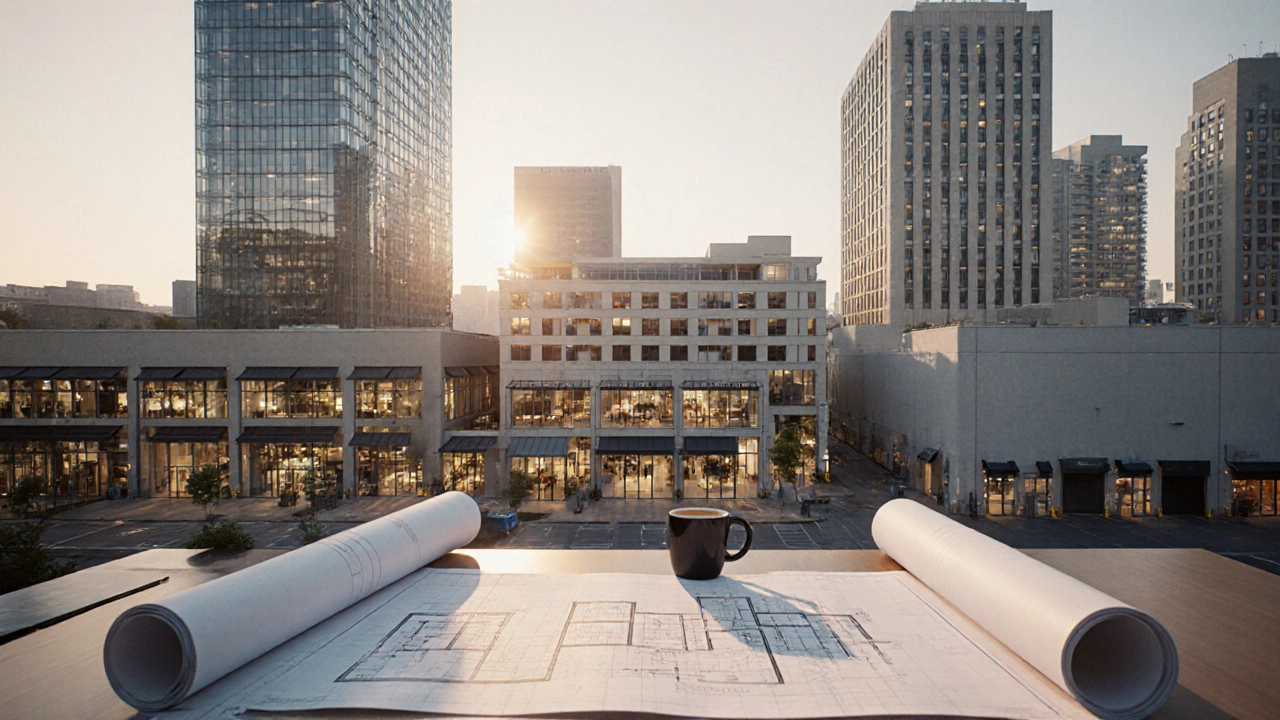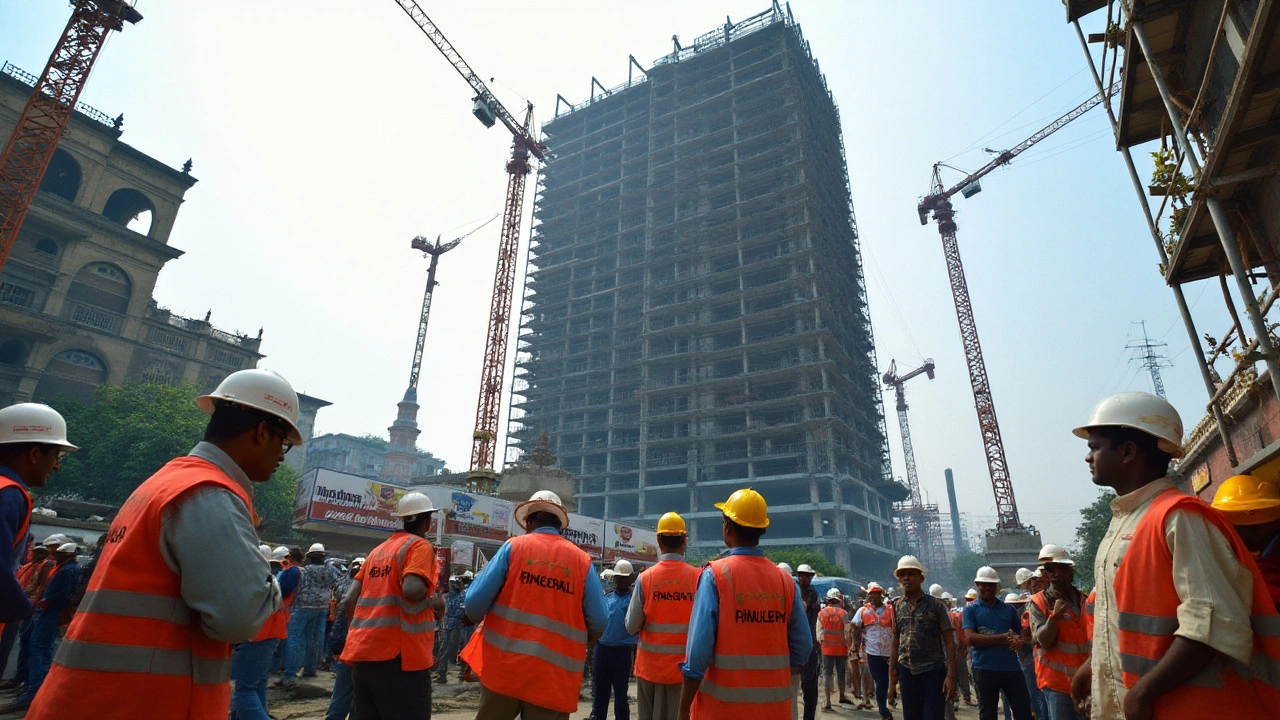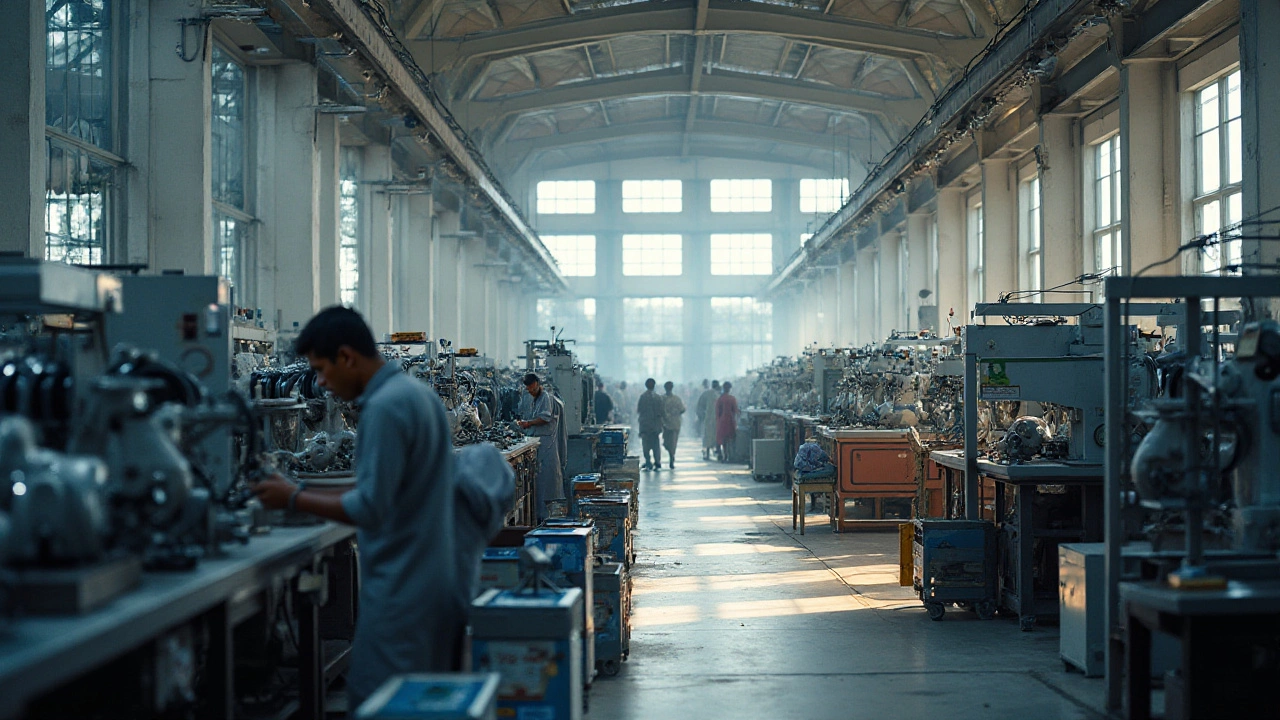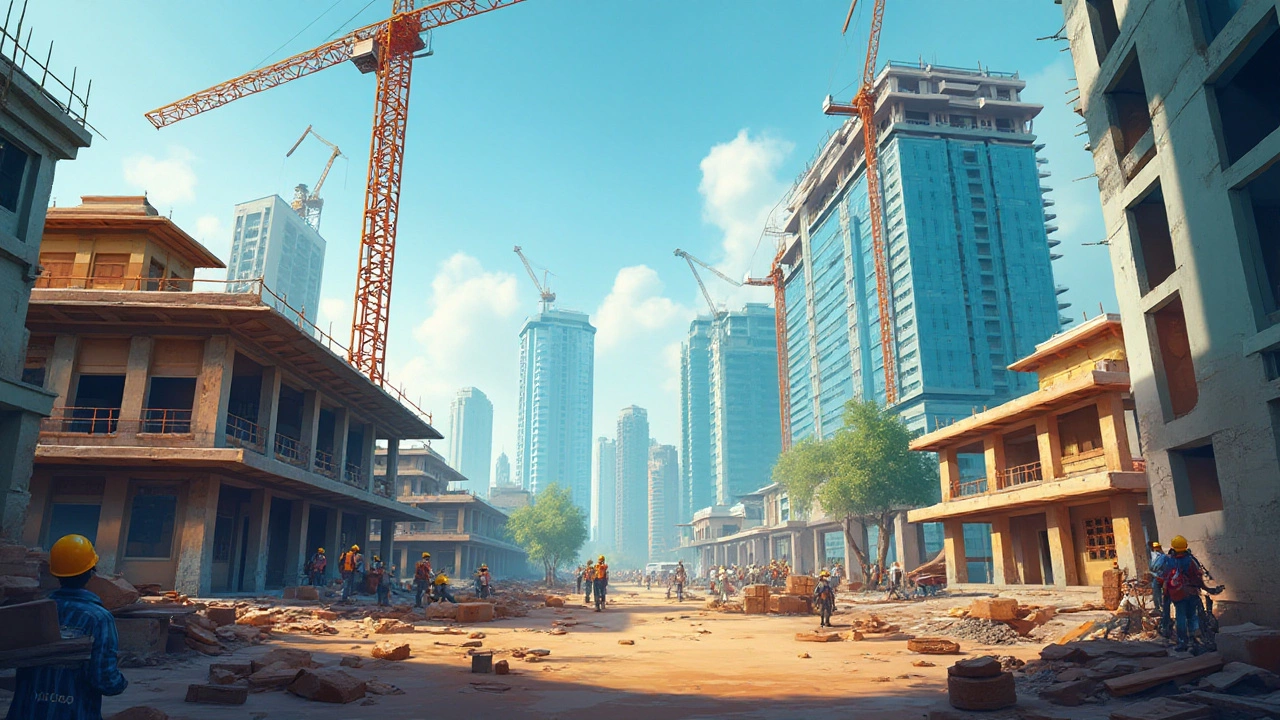Commercial Construction Made Simple with the Right Materials
Starting a commercial build can feel overwhelming. You’re juggling budgets, timelines, and a mountain of material choices. The good news is that you don’t have to reinvent the wheel. Pick reliable products, plan for the long run, and trust experts who know the industry.
Pick Durable Materials That Stand Up to Heavy Use
Commercial spaces get a lot of foot traffic, heavy furniture, and occasional spills. That means you need flooring that won’t crack or wear out after a few months. Ceramic tiles from KSR Ceramics are a solid choice—they’re scratch‑resistant, easy to clean, and come in a range of finishes that look professional.
When you compare options, think about the load rating of the tile. A higher rating handles heavy equipment and traffic better. Also, look for low‑porosity tiles; they resist stains and moisture, which is handy for kitchens, bathrooms, and lobbies.
Plan Your Budget Early and Stick to It
Budget mistakes happen when you underestimate material costs or ignore installation details. Start by listing every major material: tiles, grout, sealants, underlay, and the tools needed for the job. Get quotes from a few suppliers, then narrow it down to the best price‑to‑quality ratio.
KSR Ceramics offers bulk discounts for large projects, so ask about volume pricing if you’re covering a big floor area. Remember to factor in waste—add about 5‑10% extra tiles to cover cuts and breakage.
Another hidden cost is labor. Choose installers who specialize in commercial tile work; they know how to handle large sheets, level sub‑floors, and tight deadlines. A good contractor can save you time and prevent re‑work later.
Finally, schedule a walkthrough before you finalize the material list. Walk through the site with your architect and the tile supplier. Spot any uneven spots or moisture issues early, and choose the right tile thickness to match the sub‑floor.
By keeping the focus on durable ceramics, planning a realistic budget, and working with experienced installers, your commercial construction project will stay on track and look great for years to come.
Ready to start? Contact KSR Ceramics for samples, pricing, and advice tailored to your project’s needs.
What Is Considered Commercial Construction? Definition, Types & Real‑World Examples
Learn exactly what counts as commercial construction, its main types, key regulations, and how to classify mixed‑use projects correctly.
Continue ReadingWhat Defines a Commercial Building? Key Features Explained
Explore the key features that define a commercial building, from zoning and fire safety to design specifics and cost implications, in a clear, practical guide.
Continue ReadingDifferences Between Commercial and Industrial Construction: What's What?
Ever wondered how commercial and industrial construction differ? They're both big and important, but they serve different needs. Commercial construction involves everything from shops to skyscrapers, while industrial construction focuses on factories and energy plants. This article dives into what makes each one unique, providing insights and tips if you're planning a building project.
Continue ReadingIs Construction Commercial or Non-Commercial?
Ever wondered what makes a construction project commercial or non-commercial? This article explores the differences, highlighting essential factors like purpose, scope, and funding. Learn about the types of projects, the specifics of commercial construction, and tips for navigating the industry. Gain insight into how these projects impact communities and the economy, making this complex topic digestible and insightful.
Continue ReadingIs Commercial the Same as Non-Residential? Understanding the Differences
When discussing construction, many use 'commercial' and 'non-residential' interchangeably, but they're not the same. This article explores the differences between these terms in construction, unraveling what's truly commercial and what falls under the broader non-residential category. From offices to industrial spaces and public buildings, each has specific purposes and regulations. We'll delve into key distinctions and why they matter in construction projects. Understanding these differences helps navigate project planning more effectively.
Continue ReadingCommercial vs. Residential Construction: Making the Right Choice
Choosing between commercial and residential construction can be like comparing apples and oranges. Each comes with its own set of challenges and benefits. From zoning laws to profit margins, understanding these differences can ensure you make the right decision for your project. Whether you’re planning a small home renovation or a large office building, it's crucial to consider the costs, regulations, and potential for returns.
Continue ReadingUnderstanding Commercial Projects in Construction
A commercial construction project involves the creation or renovation of buildings for businesses. These buildings are used primarily for commercial activities such as retail, office, or industrial purposes. The process includes planning, designing, budgeting, and following specific guidelines to meet the industry standards. This article explores the essential components of commercial projects, their significance, and factors influencing their development.
Continue ReadingUnderstanding the Differences Between Industrial and Commercial Construction
Industrial and commercial construction may seem similar, but they serve distinct purposes and have unique requirements. Industrial construction focuses on facilities used for manufacturing and production, like factories and plants. On the other hand, commercial construction involves building projects like offices, retail spaces, and entertainment facilities intended for commerce activities. This article explores the key distinctions between these two types of construction, providing insights into their processes, purposes, and trends.
Continue ReadingKey Differences Between Residential and Commercial Construction
Understanding the major differences between residential and commercial construction is crucial for professionals in the building industry. This article explores the distinct features, purposes, and regulations that separate these two types of construction projects. From design considerations to the types of materials used and the legal requirements, each aspect plays a significant role in how buildings are designed and constructed. Readers will gain insights into the unique challenges and opportunities associated with both residential and commercial projects. This knowledge is essential for anyone involved in planning, designing, or managing construction activities.
Continue Reading







